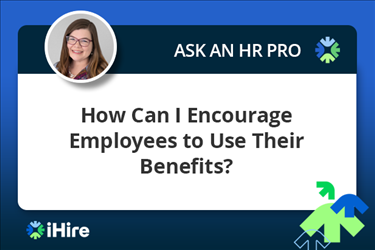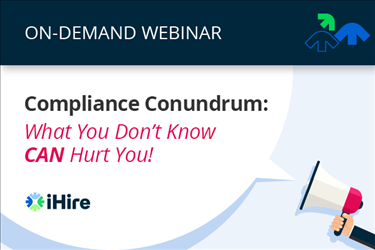- Employer Resources
- |
- Last Updated: April 12, 2024

5 Tips for Onboarding Recent Grads and Gen Z Healthcare Workers
The healthcare industry is constantly evolving, and with it comes a need for new and diverse talent. However, integrating recent grads and Gen Z healthcare workers into healthcare organizations can present unique challenges. With a multigenerational workforce, it is essential to develop strategies that ensure all generations work together seamlessly, share knowledge, and maintain a common goal. This article explores practical tips for healthcare employers on how to bridge the culture gap between recent grads and current employees.
Gen Z: Who Are They?
Gen Z refers to anyone born between 1995 and 2015. They experienced the Great Recession and COVID-19 as children and teenagers, which has led to their top career goal being to feel secure and stable. This generation is highly risk-averse and values financial planning resources. Additionally, they look for and expect to use the latest and greatest technologies at work and during the job application process.
Gen Z candidates also value flexibility, work-life balance, peer coaching, teamwork, social awareness, diversity, and authenticity in the workplace. They have grown up with millennial parents and role models who have long complained of “the grind” or hustle culture. Gen Z is looking to break the mold and create a more balanced and fulfilling work experience.
When recruiting, hiring, and onboarding a multigenerational workforce, it is important to understand how Gen Z healthcare workers and other recent grads differ from their older colleagues.

Tip 1: Revamp Your Recruitment Methods for Gen Z Healthcare Workers
To reach the newest generation of healthcare workers, you need to revamp your recruitment strategies. Traditional methods, such as job fairs and print ads, may not be as effective with this tech-savvy generation. Instead, consider using social media platforms such as LinkedIn, Instagram, and Facebook to showcase your organization’s culture and values. By leveraging these platforms, you can reach a broad range of candidates with different backgrounds, experiences, and skill sets.
Additionally, create a user-friendly online application process that is mobile-accessible and allows for video submissions. This will appeal to Gen Z’s preference for quick, convenient, and tech-forward processes. Be sure to highlight your organization’s commitment to diversity, work-life balance, and social responsibility in your job postings and recruitment efforts.
Tip 2: Assess Creativity and Adaptability During the Interview
The hiring process can be challenging, especially when interviewing recent grads with little to no experience. Unlike more seasoned healthcare professionals, Gen Z healthcare workers and recent grads may not have role-specific examples to draw from. However, that does not mean they are poor fits; new grads may bring many unique perspectives to improve your healthcare organization.
During the interview, assess how candidates handle hypothetical situations and ask about their previous problem-solving experiences. Encourage them to provide specific examples of how they have handled challenges in the past. This approach will help you to gauge their ability to adapt and think outside the box. A candidate’s creativity and adaptability are essential traits that will help them thrive in a fast-paced healthcare environment.
Create Your Account Today
Tip 3: Emphasize Benefits That Appeal to Gen Z Healthcare Workers
Generation Z represents the future of the workforce. They are highly risk-averse and place a high value on job security and financial stability. As a healthcare employer, it’s important to emphasize the benefits that resonate with Gen Zers, such as financial planning resources and insurance coverage. Show them that you value their well-being and offer competitive compensation packages.
Gen Z candidates also value work-life balance, peer coaching, teamwork, social awareness, diversity, and authenticity when choosing an employer. Highlighting these qualities in your healthcare organization will make you more attractive to this demographic.
Tip 4: Update Your Onboarding for Recent Grads
The onboarding process is crucial for integrating recent grads into the workplace culture and setting them up for success. However, traditional onboarding processes may not be as effective for Gen Z healthcare workers. Consider incorporating technology to make the process more engaging and interactive. This could include virtual tours of your facility, videos explaining company culture, and gamified training modules.
Additionally, focus on fostering relationships between recent grads and current employees. Pair them with mentors who can provide guidance and support as they navigate their new roles. Mentoring is a proven way of developing talent and ensuring knowledge transfer within an organization.
As a healthcare employer, you can implement a mentorship program that pairs recent grads with experienced healthcare professionals. This approach will enable recent grads to learn from seasoned professionals and gain valuable insights into the healthcare industry’s inner workings. Additionally, it provides an opportunity for seasoned healthcare professionals to pass on their knowledge and skills to the next generation, creating a mutually beneficial environment for all involved.
Tip 5: Foster a Culture of Open Communication
Collaboration and open communication are critical components of a successful healthcare organization. It helps to break down silos, foster teamwork, and establish a common understanding of organizational goals. As a healthcare employer, create an environment that encourages your employees to share their ideas, feedback, and suggestions. This approach not only fosters an inclusive culture but also enables you to leverage the diverse skill sets and experiences of your workforce.
For Gen Z healthcare workers and recent grads, open communication is essential as they are used to instant feedback and constant communication in their personal lives. By prioritizing open communication in your organization, you can create a positive work culture that will attract and retain top talent.

A Multigenerational Healthcare Onboarding Checklist
Now that you know more about what Gen Z healthcare workers are looking for, your healthcare onboarding checklist might need some revamping. If this is the case, here are some essential components to include in your onboarding process for recent grads:
- Virtual or in-person orientation program
- Interactive introduction to company culture and values
- Training on relevant technologies used within the organization
- Mentoring opportunities with experienced healthcare professionals
- Collaborative projects that promote teamwork and problem-solving skills
- Regular check-ins with a mentor or supervisor
- Opportunities for open communication and feedback
- Exposure to different departments and job roles within the organization
- Introductions to key stakeholders and leaders within the organization
By incorporating these elements into your onboarding process, you can create a comprehensive program that will help recent grads feel prepared, supported, and valued in their new role. This approach will also benefit your organization by promoting a positive work culture, increasing employee engagement, and reducing turnover rates. In today’s competitive job market, it’s crucial to prioritize the needs and expectations of Gen Z healthcare workers if you want to attract and retain top talent in your organization.
Successfully Onboarding Recent Grads and Gen Z Healthcare Workers
Integrating Gen Z healthcare workers and recent grads into your organization can be challenging. However, by implementing practical strategies such as leveraging multi-generational workforce recruiting platforms and social media, assessing creativity, emphasizing specific benefits, providing mentorship opportunities, and fostering a culture of collaboration and open communication, healthcare employers can bridge the culture gap and develop a diverse and cohesive workforce. Ultimately, this approach will create a win-win situation for both the organization and its employees.
Explore our Resource Center for more healthcare hiring advice, as well as our library of onboarding articles, tips, and templates.




